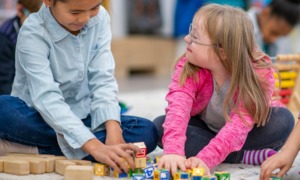 |
Carolyn Boyes-Watson
Living Justice Press
288 pages. $20.
“How can we live in a good way with each other?” This question is addressed by Roca, a community organization of youth advocates in Chelsea, “one of the most broken and dangerous neighborhoods near Boston,” where residents of many ethnicities are mired in poverty.
To reduce gang activity and help young people in crisis, Roca’s feisty staff tried a new tactic: bringing professionals from the courts, police, juvenile services, social services, health clinics, schools, and city government – in various combinations – to meet with families and young people in peacemaking Circles.
Based on a ritual of indigenous peoples, Circles explore issues and resolve conflicts in an egalitarian way. Participants use only first names when they sit in Circle, which gathers for a stated purpose. After opening, the group’s first task is to agree on guidelines based on shared values. A “talking piece” (a feather or other object) is passed around; one can speak only when holding it. As trust and understanding build, participants find solutions peacefully. An ending concludes the process “in a good way.”
“The Circle gives me confidence and that safe zone to open up and talk,” says a young Roca staff member. A group of rowdy young Bosnians became quiet for the first time in Circle, sharing experiences of war and weeping as they revealed how drugs help them escape their past. In another Circle, the rigid director of a detention facility abandoned her initial negativity when participants respectfully responded to her criticisms. Then she scheduled Circles for her staff and the incarcerated young women.
For this case study, sociologist Carolyn Boyes-Watson, founding director of Suffolk University’s Center for Restorative Justice, interviewed 43 young people, staff members and community partners involved in Roca’s peacemaking Circles, and experienced Circles herself. Chapters explore how Roca uses Circles as a youth development strategy and as spaces for empowerment, accountability, and healing – and to encourage bureaucratic systems to find their “heart” in cooperation.
The Circle “experience of being in relationships of respect, dignity, and compassion with other human beings” leads to “profound change,” creating a just world where “all young people are valued and belong,” Boyes-Watson writes. This compelling story of a community’s journey toward transformation provokes readers to reconsider their approaches to working with youth. (651) 695-1008, http://www.livingjusticepress.org.































